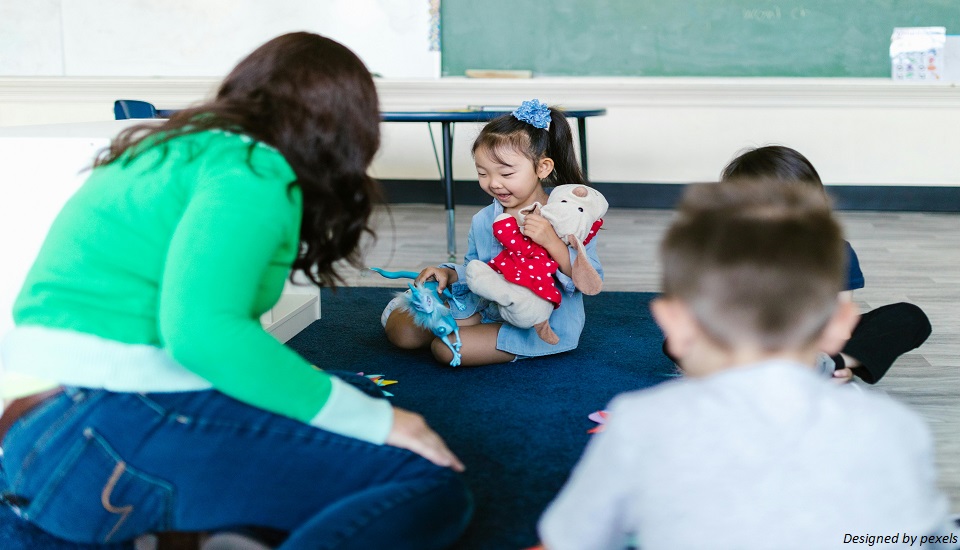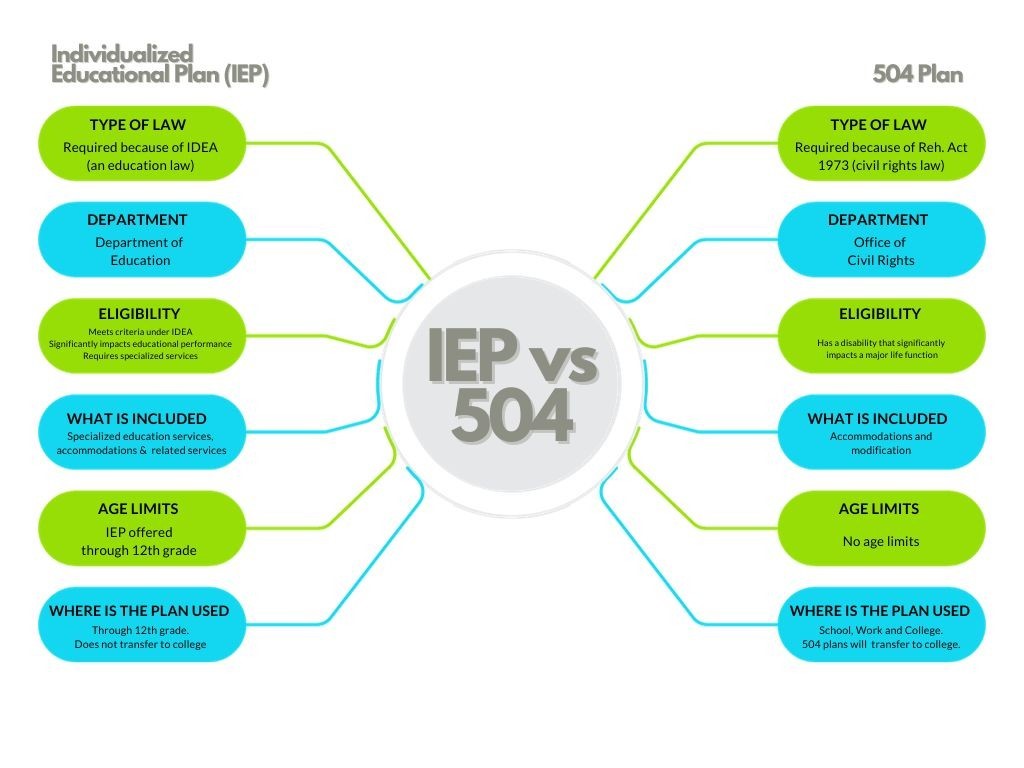IEPs Vs 504: Understanding The Difference For Students With Disabilities
30th May 2024

It might be confusing to navigate the special education landscape. Individualized Education Programs (IEPs) and 504 plans are certainly familiar to you, but it's not always easy to distinguish between them. Both an IEP and a 504 plan are legal frameworks created to assist kids with disabilities.
Despite having numerous similarities, they have different functions. Read on to explore the differences: 504 plans vs. IEP. You will discover each one's purpose, what it stands for, and how it might help your child. With this information, you will be able to make wise choices regarding your child's education.
What Is An IEP?
An IEP is governed by the Individuals with Disabilities Education Act (IDEA). This federal act ensures that eligible children with disabilities have access to special education and related services. A student can get specially designed instruction that is tailored to their requirements based on their goals, objectives, and impairments when they have an IEP.
An IEP is a working document that allows for the necessary adjustments. A special education teacher working in the student's Least Restrictive Environment (LRE) concentrates on these goals to help the student advance in areas affected by their handicap.
An IEP plan outlines the services every special education child requires along with the following mandatory ones:
- A classroom to support the instructional placement of the student
- Accommodations and modifications as and when necessary
- Extra services such as counseling, occupational therapy, speech, extended school year, assistive technology, and transportation
Do you follow us on Social Media? If not, then you’re missing out on a lot of informative content. We regularly share upgraded educational content, tips, feedback, and more. Check us out by clicking the profiles here - Facebook / Twitter / LinkedIn / Pinterest / Instagram / YouTube
What Is There In An IEP?
An IEP has to contain information about the child as well as the specific education plan designed to meet their needs. The report includes the child's present academic achievement levels and functional performance (PLAAFP), which describes how the child's disability impacts their involvement in the general education curriculum.
The following IEP components are necessary as per IDEA:
- Yearly goals that are measurable
- Regular reports on students' progress
- Special education, supplemental aids, and related services
- Minimized restrictive environment
- Student participation in district and state-wide tests
- Description of service delivery
- Post-secondary transitional components
- Transition services and activities
What Is A 504 Section Plan?
Section 504 of the Rehabilitation Act is a federal civil rights law that ensures that no individual is subjected to discrimination based on their handicap. This provision is covered by a 504 plan. While these plans don't have specific aims or objectives, they do provide support and modifications. 504 plans are periodically assessed based on need. If parents feel that more regular meetings are needed to discuss the plan, they are free to request such meetings.
What Is Included In A 504 Plan?
A 504 plan's contents are not required, but schools design customized modifications to meet each student's requirements according to their condition. Among many other things, accommodations may be provided by bigger print, accessible technology, preferred seating, written instructions, pre-lesson notes, and more.
Who Qualifies For And IEP?
According to IDEA, students may be qualified for free and adequate education (FAPE) in special education under one of the following 13 categories:
- Deafness
- Deaf-blindness
- Autism
- Intellectual disability
- Emotional disturbance
- Multiple disabilities
- Hearing impairment
- Orthopaedic impairment
- Other health impairments
- Specific learning disability
- Language and speech impairment
- Visual impairment
- Traumatic brain injury
IEPs are only good for students in years K–12; they expire when a student graduates from high school. A legally binding document, an IEP provides a comprehensive plan for specialized instruction and assistance in the areas where a student's disability affects learning.
Who Can Opt For A 504 Plan?
These are often given to children who, because of a disability or health concern, may require assistance instead of specialized schooling. The school team should take into account data from the child's doctors, family, teachers, and other relevant support providers when determining if a 504 plan is necessary. Even if a child is not qualified for special education services under an IEP, they could still be eligible for support under a 504 plan.
Key Differences Between IEP And 504 Plan

Some of the major differences between these two plans are given below:
- While reasonable accommodations are often the main emphasis of a 504 Plan, an IEP offers a more thorough description of services and supports that are by annual objectives.
- While an IEP includes an official review process and an IEP team meeting, a 504 Plan is often created by local legislation. The procedures for obtaining documents vary.
- Both require educational institutions to provide free and appropriate public education to students with disabilities; all students, regardless of handicap, are entitled to educational benefits.
Choose The Right Fit For Your Students
Both strategies are suitable for kids in grades K–12 and can assist with adaptations, but they have some key differences. Both approaches have benefits for assisting kids in becoming more independent. It will be simpler for teachers with Online Learning Disabilities Course for Teachers to understand the two plans and choose the one that best suits their kids' requirements.
We believe education should be accessible for everyone. That’s why we don’t charge for our blogs. Find the right course that will help you in your career with us, contact us at - 91-6292150868. You can mail us at act@asiancollegeofteachers.com

